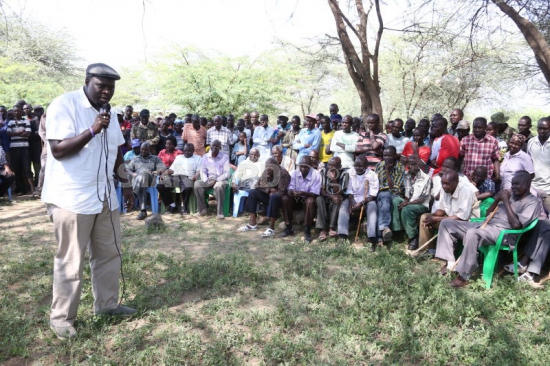×
The Standard e-Paper
Smart Minds Choose Us

In the plains of Loruk, a little market on the banks of Lake Baringo, there’s a circle of huge acacia trees next to the smooth tarmac road that leads to Nakuru on one end, and Sigor on the other. That is Baringo North, the land of the Tugen.
On any other day, that little circle of trees with a very cool shade is just a patch in the wilderness. Everyone goes about their business in the market a few yards away. Tired cattle chew cud in the cool breezy shade. It looks peaceful. Calm.